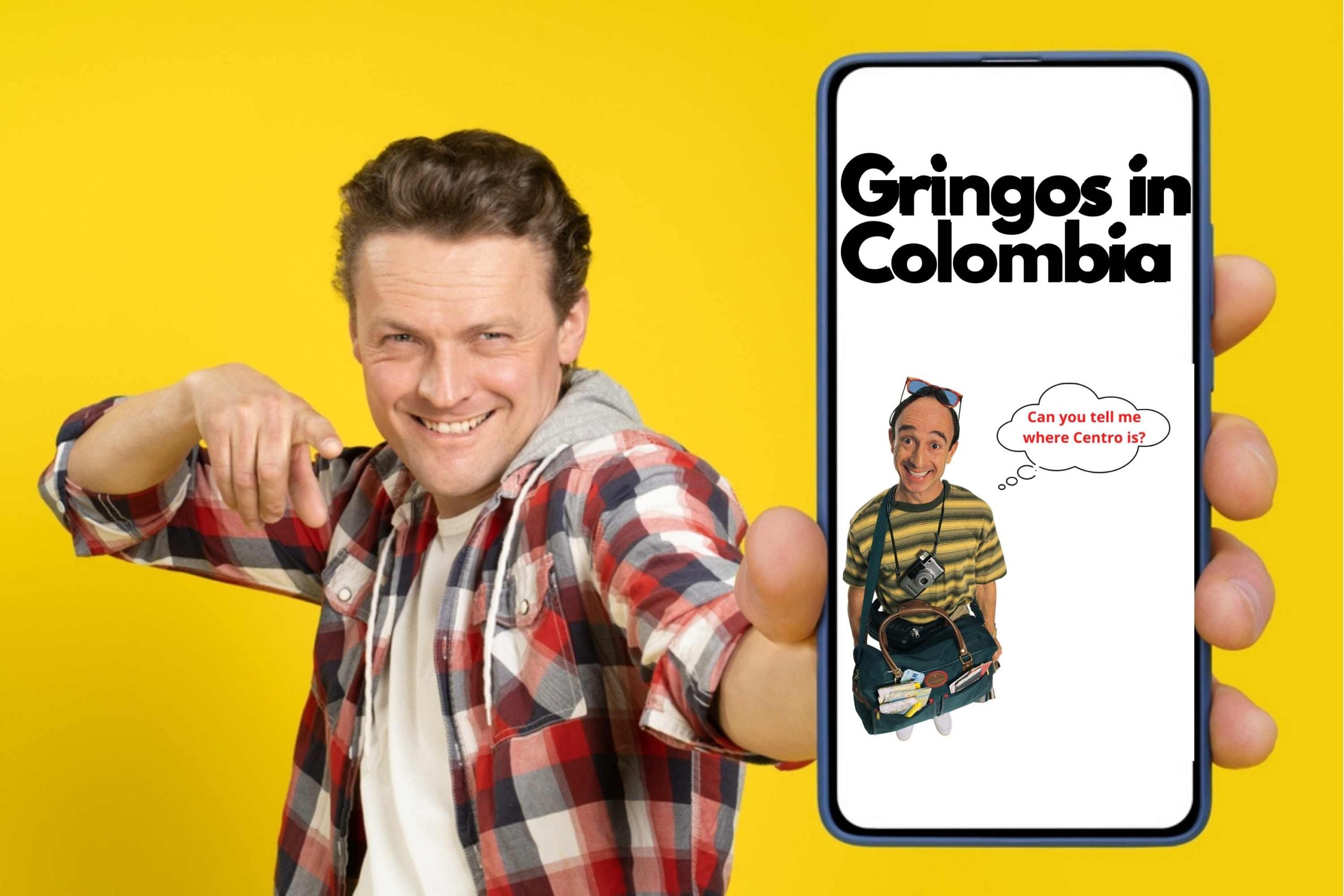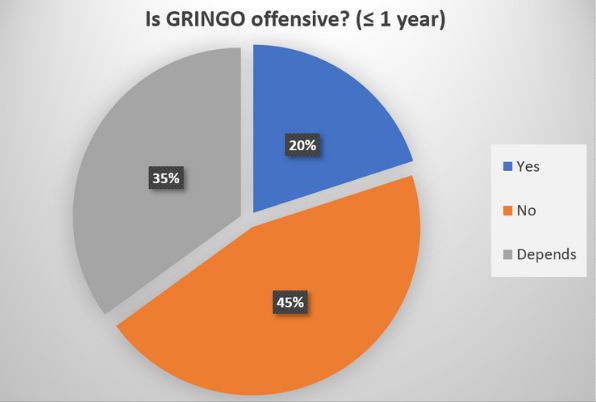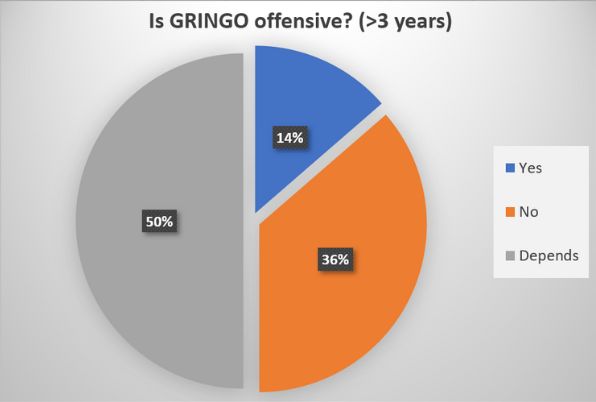Is It Insulting to Be Called a Gringo in Medellin?
Does it trigger you?
By Kaveh Paymayesh

How would you feel if you were called a gringo in Colombia? Objectified perhaps, or even discriminated?
After all, nobody wants to be gringo priced – and that certainly is a growing phenomenon here.
Ethnic terms are often loaded with connotations. In the US, there is debate about the use of the word Latino, and even an effort to replace it with a more ‘inclusive’ term such as Latinx.
As a foreigner, I have also wondered what to make of the ethnic label “gringo”. For an outsider, it may feel confusing and/or marginalizing.
In this article, we shall demystify the use of the word gringo and also to whom it is directed. Is it offensive?

Who is a gringo?
This has been well answered by Aida Ramirez in the NPR article “Who, Exactly, Is A Gringo?”:
Gringo can be used to broadly and inoffensively refer to a group of U.S. citizens. I’ve also heard it used as a term for Europeans. I’ve heard the term used as a name for people who don’t speak Spanish. It can also be used to refer to Hispanics who speak very little or no Spanish at all. Gringo is also sometimes used as a name for Hispanics who are not in touch with their Latino roots, or for any person who is ignorant of Latin American culture or history.
Aida Ramirez
Basically, you’re a gringo if you’re from anywhere outside of South America, and maybe Spain.
If you speak English better than Spanish, it is likely that you will be seen as a gringo.
This is the official definition of a gringo
According to the Cambridge Academic Content Dictionary, a “gringo” has a neutral meaning:
Someone in a Latin American country who is not Latin American, esp. someone who speaks only English.
Let’s look at a translated definition provided by the ruling body of the Spanish language, the dictionary of the Royal Spanish Academy:
Extranjero, especialmente de habla inglesa, y en general hablante de una lengua que no sea la española
Again – a very similar, neutral definition of the word gringo.
“Foreigner, especially English speaking, and in general a speaker of a language that isn’t Spanish.”
As you can see, there are no derogatory implications…

So where did "gringo" come from?
I found a couple of theories as to where this word originated. For the most part, they do not carry any negative undercurrents:
Griego - Spanish for Greek
Have you ever heard the expression, “it’s all Greek to me…”?
It’s a phrase used when something is incomprehensible.
Maybe ‘gringo’ is a deformation from the word ‘griego’, it provides a plausible explanation. When Spanish speakers would hear English, it was incomprehensible to them, just like hearing Greek.
"Green, go home!"
Between 1846-1848, the US & Mexico endured a territorial conflict.
Some posit that ‘gringo’ is an abbreviation of the phrase, “green, go home”, referring to the green uniform worn by the Americans.
I don’t think this theory holds much weight. In reality, it was Mexican troops wearing green while US soldiers sported blue. Just look at this picture below:

What do gringos think of the word?
To better understand what gringos actually think of the term given to them, I carried out some fieldwork…
I asked 40 foreigners in Medellin what they think of the term. The options provided are:
- Yes (it’s offensive)
- No
- It depends.
These 40 participants are divided into two groups: those that have been in Medellin for 1 year or less and those who have been there for over 3.
Gringos living in Medellin for a year or less think that...

Although the sample size is small, we can observe that of the 20 gringos surveyed:
- Only 4 believe that the word gringo is offensive.
- The majority (9) think that the term gringo is not offensive.
- The other 7 participants believe that is contextual; that it depends on the manner and details of the situation in which the word is used.
Long-term gringos living in Medellin think that...

For longer-term foreigners living in Medellin, we can observe a slight shift in perception:
- Only 3 people think that the term gringo is offensive.
- 8 participants think that the term is inoffensive.
- The majority (11) of participants feel that it depends.
Based on these results, it seems that the longer foreigners live in Medellin, the more mixed they feel about the term gringo.
Don't get triggered - this is Coloombia!
If you’re in Colombia and somebody calls you a gringo, don’t jump the gun. Don’t get triggered!
In this part of the world, people use terms of endearment that may otherwise be considered offensive elsewhere.
Examples include: Gordo (fatty), flaco (skinny), negro (black), cucho (oldie) and so on…
It’s not unusual for a wife to nickname her husband gordo.
Imagine calling someone negro in the US? The reality is that these terms have been shaped by years of prejudice and racism, so they, quite righteously, have different connotations.
If you’ve seen Narcos, you might remember that one of Pablo’s dearest henchmen is nicknamed ‘negro’. It is an affectionate nickname, not disparaging.
It is understandable for people to extrapolate their beliefs when coming abroad, but after a little time, you’ll soon see that the lay of the land here is different. Generally speaking, Paisas are lighthearted and less offensive/offended.

'Gringo' can be derogatory - but it depends!
The term can be offensive, but usually amongst other foreigners.
Many times, I’ve heard foreigners themselves refer to other gringos negatively. For example, “Medellin is no longer a ‘secret’ from other gringos”
Or that “gringos are ruining the place or making it less safe”.
Furthermore, some are going to find the term offensive as they simply don’t want to feel defined by terms that they’ve not opted for. Unfortunately, this is the reality when you move into a fairly homogenous society.
Gringo pricing doesn’t help either. It’s an example of where gringos actually are discriminated against.
There is also the potential for gringos to be used offensively by locals, but this is quite rare and I’ve never experienced it myself.
This will be fairly obvious though. You should pay attention to the inflexion of the word and the context in which it is used.
Don't worry about 'gringo' - these are the words to look out for
Colombians have a fruitful repertoire of nasty words:
- Maricon
- Marica
- Hijueputa/hijo de puta
- Pirobo
- Malparido
- Malnacido
- Gonorrea.
If you’re called any of these, then you can start to worry.
Conclusion - is gringo offensive?
We live in a time when anything can be offensive. Despite the intent of Colombians using the word, we may respond to the term in a negative manner.
Of course, it is associated with a growing phenomenon which is gringo-pricing. Nobody wants to fall into that bracket.
Otherwise, the term is generally the result of Colombian laziness. It is a broad/lazy term to pigeonhole all foreigners into the same box.
People are dynamic, so it is only understandable to be annoyed when we are reduced to a common, homogenizing term.
As you spend more time in the country, you’ll realize that it is more frequently used endearingly than nastily.
Anyhow, it begs the question:
Are you offended by the term gringo?
Facebook
Twitter
LinkedIn
Reddit